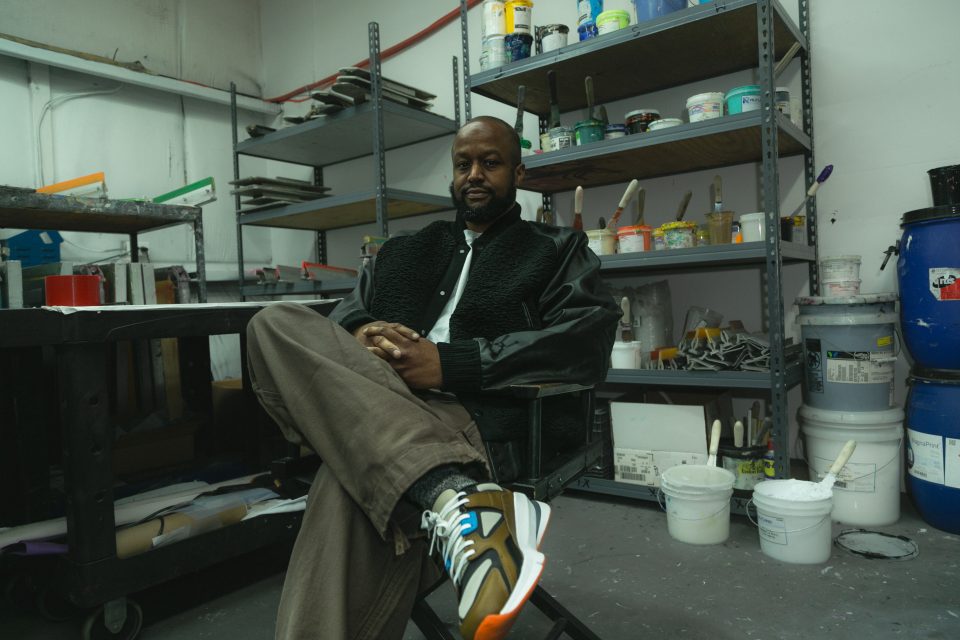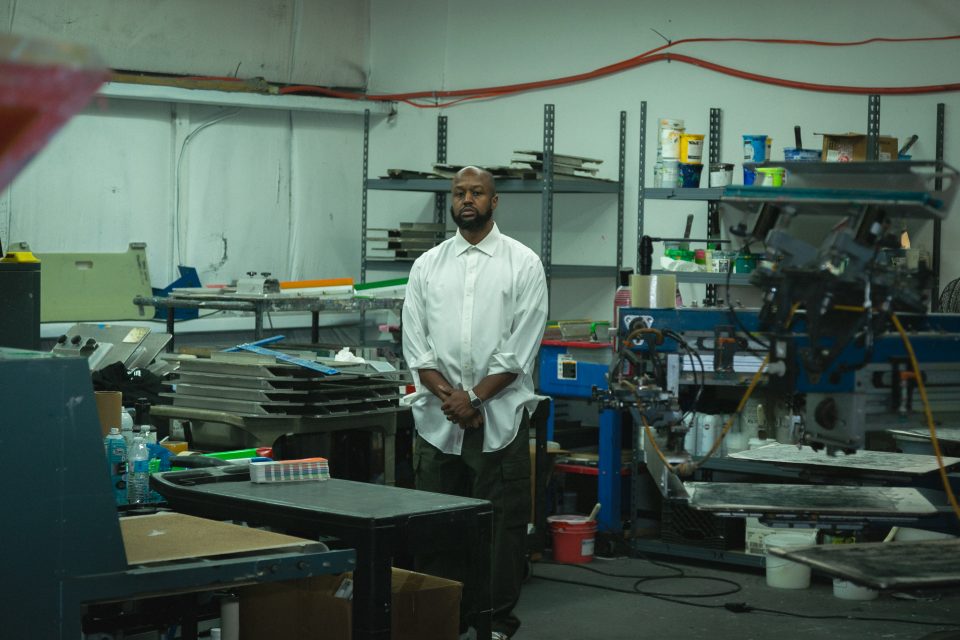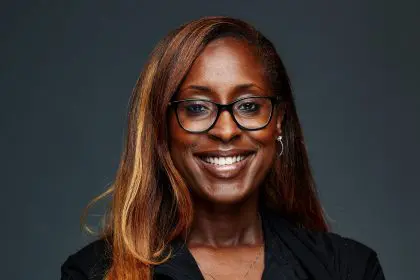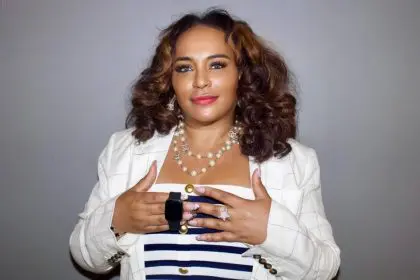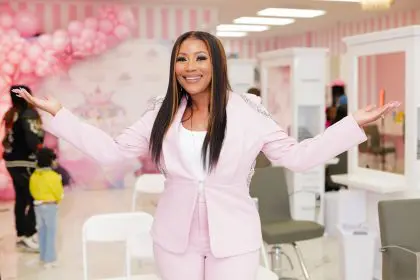Greg Dennis is a visionary entrepreneur and the founder of Centered Human, a product development agency that fuses cutting-edge technology with the art of human-centric design. His journey into the apparel industry began as a middle schooler learning to sew, and it has since evolved into a career marked by innovation and adaptability.
In this engaging conversation with Munson Steed on Founders and Funders, Greg discusses the essence of being a founder, the importance of listening to customers and funders, the critical role of research, and the evolving nature of entrepreneurship. He offers profound insights on building viable businesses that stand the test of time while adapting to ever-changing technologies.
[Editor’s note: This is a truncated transcription of a longer video interview. Please see the video for the extended version. Some errors may occur.]
What does it mean to you to be a founder?
To be a founder is to be a person with a vision and willing to do whatever it takes to execute that vision in a sustainable manner. I think the unhealthy way to approach founding a startup is to find success or look for success at all costs by any means necessary. Yes, you could take that energy and that approach, but you could still do it in a sustainable way where you could have a business built with a strong foundation and it’s actually a business, and it’s just not things, it’s not just an entity that’s just going to suck up funds and burn through cash.
You actually cash for a positive, and you have happy customers, and you’re building and cultivating relationships that will last the lifetime of that business versus just a churn-and-burn scenario.
How important is listening to your customer and funders when gaining access to both their network and their funds?
Absolutely. You definitely have to listen to both sides, but you definitely have to lean on the customer more because, no matter what, the customer could take you there. Having funders on your side and in your back pocket is definitely a great thing, but if you don’t have a viable business or a viable service or a viable product and a customer that’s willing to separate from their cash to give to you for that service or that product, it makes no sense. You don’t have an actual business; it’s pretty much a hobby or it’s a wish.
Definitely focus on the customer, the customer journey, the customer experience, and making sure that you’re delivering a product that can stand up to the test of time, be it if it’s a service or actual tangible goods. Definitely spend a lot of time with your customers and in a way that is efficient for you and for them. You don’t want to waste anyone’s time, and you don’t want to waste your time, but make sure when you do have the opportunity to connect with your customer, make sure you have meaningful conversations and make sure you both are aligned with moving the journey forward to achieve their goals and your goals, and make sure there’s no misalignment there.
Also, on top of that, being a founder is there’s always going to be mistakes. Make sure you own those mistakes and find a solution and a better path forward.
How important is research in understanding and presenting your business to funders?
That’s a good question. I’ve been in the apparel industry. My business is Centered Human, and we are a product development slash product creation agency. We are tech-enabled. There’s tech in everything that we do and touch, but at the center of it is the human element. Emotional intelligence, the art, the taste of building product.
The direction I was going down was being that this is the apparel space. I’ve been in this space since middle school. Since home economics class, there were two different options. It was either sewing or cooking. For some reason, I decided to go down the sewing path. The research element of the things that it takes to build product and everything that ends and out of this business, I’ve been traveling down this pathway since youth. It didn’t take much to research, to be honest with you, for this particular business.
But if I was to start a new business, for example, I had an opportunity to open up a restaurant about 12 to 15 years ago. I had to do tons of research. Spent hours of time in an actual real kitchen. Take cooking lessons. Learn about different codes. Learn about different laws. Just so I know that if I’m going to invest my time and money into this entity that I’m not familiar with, that I give myself a fighting chance.
So, definitely research is definitely important in anything that you do. Even for me, approaching tech and applying technology into the fashion business. Fashion is very hands-on as far as manufacturing, design, development, but definitely tech can help ease up the pressures of human capital and human resources. So, me doing tons of research, having conversations with engineers and things of that nature is definitely helpful as well.
So definitely spend some time doing research. The great thing about it is I came in this industry where we were still using fax machines. And to have a meeting, it was either face-to-face or it was a conference call. So now that we have technology, the internet, computers, your cell phone, there’s pretty much no excuse to get that information and that knowledge if you really want it.
If you were to give a keynote to future founders, what would the topic be, and what are the three key takeaways?
The topic of the speech would be “Build a business, a viable business”. So that when you go to a funder and when they look at your numbers, it’s just not smoke and mirrors. There’s actually a business behind it. And also, that business could help you sustain yourself as well. And you could build on top of that as well. So, let’s say if you don’t get funding, you can always bootstrap it. You can always figure it out. And then once you get to a certain level, there could be non-traditional VCs, or you could get investment from friends or family or from other local businesses and other entities if you don’t want to go down the VC route.
So also, I would say build a viable business and make sure that business could sustain itself without funding first. And the three topics I would love to talk about is, one, how to build a sustainable business. That’d be one. Two is how can you maintain that sustainable business? So, you go from zero to one or zero to two, then how can you go from two to six, two to eight as far as the longevity of that business and things of that nature?
And three is the continuous evolution of the product or the service that you’re offering because with technology, things are changing fast, rapidly. I took a data science course three years ago. Everything I learned in that data science course is obsolete right now because of AI. So how do you stay in front of that technology and constantly improve and cultivate your skills and talents and make sure that your business maintains its compatibility for the future?
How important is it to genuinely want to be in the business versus just liking the idea of it?
That’s a great question. And there’s no right or wrong approach to it. It’s just what can you bring to the marketplace? So, for example, my path has always been fashion since youth, but also, I am a real estate investor as well. I didn’t go to school for real estate. I don’t know how to build a house. I don’t know how to construct a house, but I do know laws about housing and things of that nature.
Am I passionate about real estate? So so, it doesn’t get me up out of bed in the morning, but I do enjoy it and I have fun. I get to work with my family. My brother and I are in business together. So, we get to talk a lot. It gives us an opportunity to connect and build outside of just being family. So that’s a great opportunity as well. But you don’t have to be all in on the idea, but just making sure that you’re providing a great product, a great service.
All my tenants have been with me for 10 years or plus. So, it’s about building relationships. It’s about understanding human needs, anticipating human needs, and continuously cultivating that product and that service. So, you don’t have to be 100% all in on the actual product or service that you’re offering, but you do have to care.
Greg Dennis, a visionary founder redefining sustainable success
Greg Dennis exemplifies what it means to be a thoughtful and forward-thinking founder. His insights on building sustainable businesses, cultivating lasting relationships, and adapting to the ever-changing technological landscape provide a blueprint for aspiring entrepreneurs. From his roots in fashion to his ventures in real estate, Greg demonstrates that success comes from a mix of passion, research, and a genuine commitment to delivering value.
